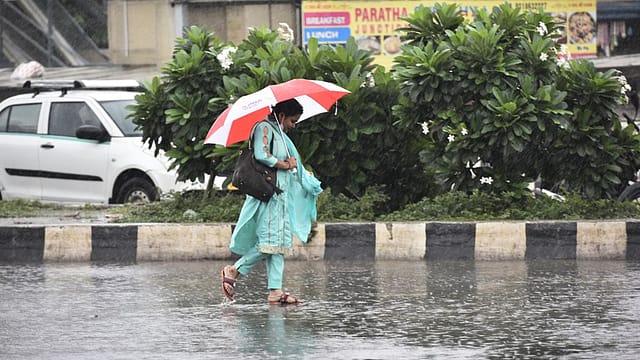Wait for monsoon gets longer
ADVERTISEMENT

The southwest monsoon over Kerala is likely to be slightly delayed than the normal arrival date of June 1, according to the India Meteorological Department (IMD).
The monsoon onset over Kerala is likely to be on June 4, the national weather forecaster says in a press statement.
Southwest monsoon normally hits Kerala on June 1, with a standard deviation of about seven days, as per IMD.
Private weather forecaster Skymet expects the southwest monsoon to hit Kerala on June 7, a week-long delay from the usual onset date.
The onset will be delayed and the advancement slightly sluggish over peninsular India, says Skymet.
The weather agency cautions that hot weather will continue deep into June this year over central and northern parts of the country which may not augur well for Kharif sowing.
Advance of the southwest monsoon over the Indian mainland is marked by its onset over Kerala, an important indicator characterising the transition from hot and dry season to a rainy season. As the monsoon progresses northward, relief from scorching summer temperatures is experienced over the areas.
"A powerful cyclone 'FABIEN' is moving over the South Indian Ocean in the equatorial latitudes, abeam Southern Peninsula. The hurricane-strength weather system will take nearly one week to clear the area. This monster storm is restricting the cross-equatorial flow and the build-up of the Monsoon stream. Also, the Arabian Sea continues to host an anticyclone over the central parts in the lower levels of the atmosphere. This acts as a deterrent for the smooth streaming of Monsoon flow from the Arabian Sea to the West Coast," says Skymet.
The private weather forecaster adds that other pertinent features are also not likely to get aligned with the desired wind pattern over the next 10 days or even more. "There are no visible signs of establishing typical low-level jet (LLJ) of westerly winds, considered essential for the onset of monsoon," it says.
Skymet expects the upcoming monsoon season to be 'below normal' amid a possibility of El Nino. El Nino refers to the unusual warming of the surface ocean waters in the equatorial Pacific region which affects the global climate. In the case of India, the occurrence of El Nino is linked with the poor monsoon, implying below-normal or deficient rainfall during the June-September period.
According to India Ratings and Research (Ind-Ra), elevated temperatures across India could not only affect the country's agricultural output but also keep inflation at elevated levels. Ind-Ra had earlier warned that this can have an impact on rural demand which has been under stress in the aftermath of the Covid-19 pandemic.
The rating agency, however, said the increase in rabi crop output in recent years has lessened the adverse impact of the deficient monsoon on India's agriculture. "Historically, agriculture production used to be higher in the kharif season than in the rabi season. However, rabi food grain output/production over the past several years has been mostly either at par or higher (consistently during FY18 to FY22) than kharif production," Ind-Ra said in April.